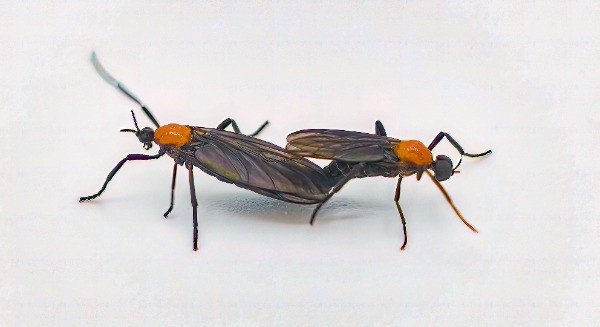24/7 Live Customer Service
CALL OR TEXT (225) 261-4198

Blog Post
Do Lovebugs Ruin Car Paint?

The pH balance of a lovebug’s eggs and body after being splattered on a vehicle is slightly acidic. When left to make in the sun’s heat for a few hours, it’s possible that your car’s paint can start to erode. If the buggy mess isn’t washed off for a few days, then the bacterial action involved in breaking down the guts and juices will only increase the acid levels, ramping up the damage that lovebugs can do to car paint.
Can Lovebugs Damage Cars?
While cars generally do far more damage than a lovebug could ever hope to do to it in return, the lovebug’s ability to damage cars comes from its swarming. Large numbers of dead bugs smashed into a car’s radiator will cause issues for liquid-cooled engines, and the reduced visibility from their insides smearing over windows can lead to accidents on the road.
Where Do Lovebugs Come From?
Commonly known as March flies, honeymoon flies, and double-headed bugs, lovebugs originate from the steamy climates of Central America. They came to the United States sometime around the Second World War.
Lovebugs swarm two times per year, usually in May and September, for a few weeks at a time. The adult lifespan of a lovebug is rather short at only about four days, but a single female lovebug can lay up to 350 eggs. Popular swarming times are during the day but when the sun is not at its highest.
While not dangerous to humans, lovebugs can damage paint on a car.
How to Clean Off Lovebugs On a Car?
If you’ve recently driven through a swarm of these flying pests, prevent lovebug damage to your car’s paint by washing them off sooner rather than later. This can be done with soapy water and a hose at home or by simply driving your vehicle through a local car wash. If you want to go the extra mile to alleviate the splatting in the future, then put a full layer or two of wax on your car to help their bodies and guts slide off easier while you’re driving on the road.
How to Prevent Lovebugs
Lovebugs like to lay their eggs in grassy patches, clumps of cut lawn, and similar areas. If you’re a homeowner, you can reduce hotspots for lovebugs by bagging up your trimmings while mowing. You can also prevent them from pestering you as much by sticking to windy areas outside or by bringing a large fan to the party. Lovebugs are weak fliers, and they don’t like areas with lots of wind.